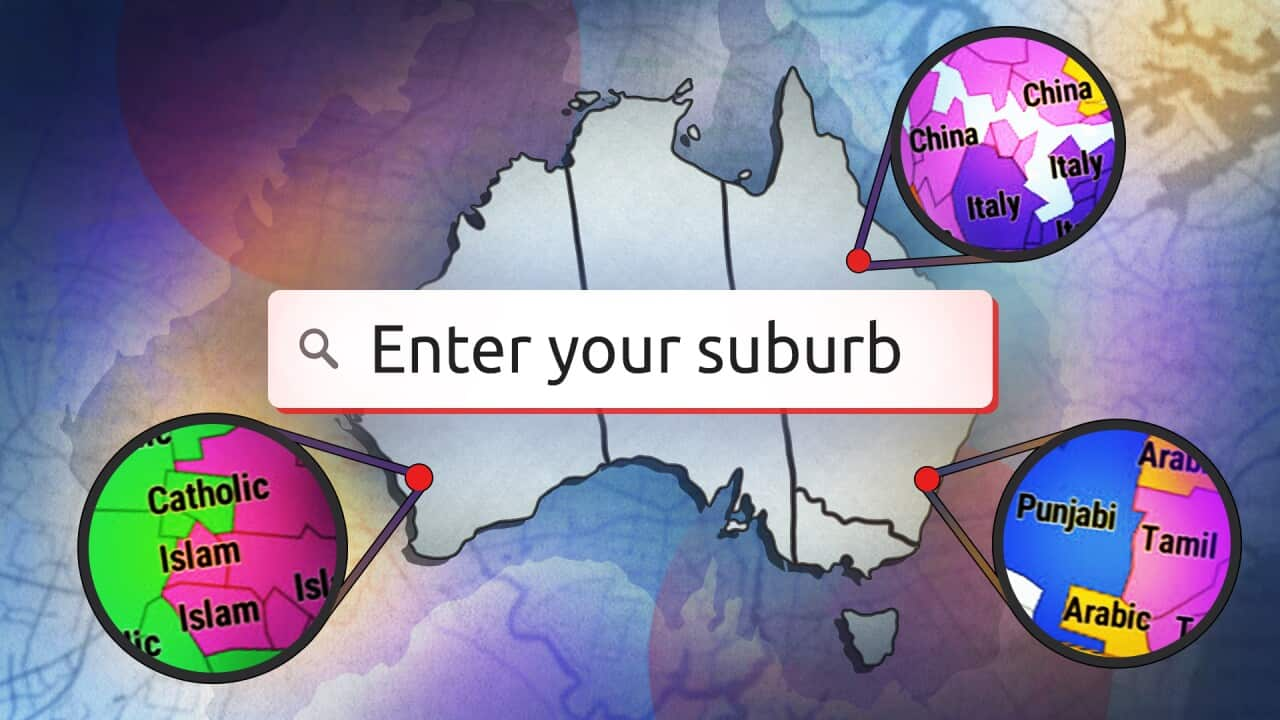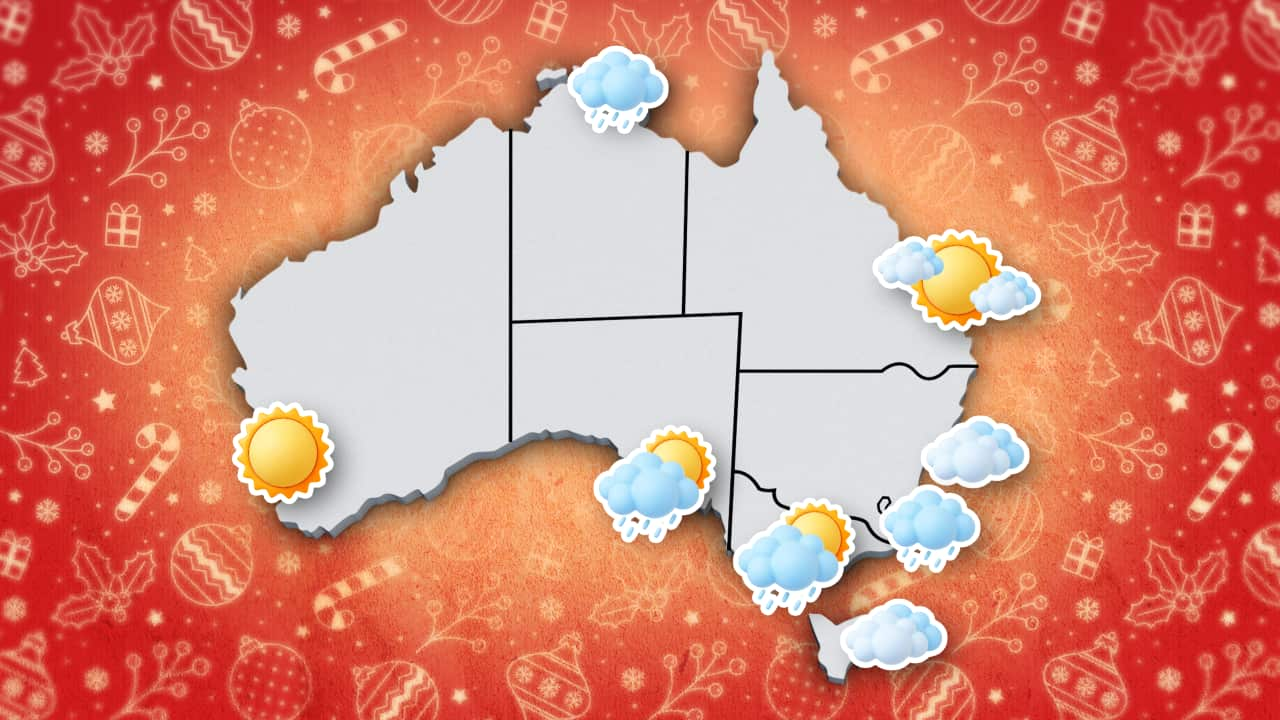On Christmas Eve, Anthony Herrera prepares a "very special" dinner for his family with an array of dishes from his homeland.
The family, which migrated from the Philippines and now lives in Melbourne, celebrates what is known as 'Noche Buena', sitting down to eat together at midnight.
While some Filipino culinary customs Herrera said that for his family, things here are a little different.
Inspired by memories from his childhood, a charcoal-roasted pig, called lechon, is placed in the middle of the dining table.
Other main dishes include barbecued skewers, a variation of honey-glazed ham and purple yams, known as ube – a traditional staple with a sweet, nutty flavour.
"It [Christmas] won't be complete if no one is grilling on the barbecue outside with charcoal," he said.
For something sweet, dessert is always fruit salad – a cold dish made from canned fruit, cream and condensed milk.
"It will always be a hit! It [Christmas] won't be complete without it," he said.

A selection of Filipino dishes enjoyed by Herrera's family on Christmas Eve. Source: Supplied by Danyal Syed / Anthony Herrera
For others, Christmas might mean prawns on the barbecue, summer salads and passionfruit-topped pavlovas.
But for Christians from various observant communities across the world who now call Australia home, their menus can look very different.
In today's Australia, about 28 per cent of people were born overseas and almost half of them have a parent who was born overseas,
More than a million new migrants have been welcomed into Australia since 2017, and around 220,000 came from India – the largest increase in the country of birth outside of Australia.
There were approximately 310,620 Filipino-born people living in Australia, according to the latest census data.
Herrera moved to Australia in 2013, from the city of Marikina in the Philippines.
He lives with his wife and children in Melbourne, where he runs a restaurant serving authentic Filipino dishes.
Noche Buena, which in Spanish means 'the Good Night', is largely celebrated on 24 December in Latin America, Spain and the Philippines. It's said to trace back to the spread of Catholicism until the late 17th century.
According to a 2011 report from the Pew Research Centre, a nonpartisan American think tank, about 80 per cent of Filipinos identify as Catholic.
READ MORE

How multicultural is your suburb?
The report states that this majority has its origins in the islands' long history as a Spanish colony.
For Herrera and his family, food is a big part of their Christmas celebrations – and continuing traditions.
"Even if I live in a different country and call Australia my home, it's still great to experience some of the things that you grew up with," he said.
"It's not just the nostalgic feeling; it's about being grateful about where you are, and never forgetting where you came from."
Australia's changing Christmas menu
Nelly Robinson is the owner and chef patron of Sydney's NEL restaurant.
He has worked in the food industry since the age of 15 around the UK and Europe before moving to Australia in 2010.
Robinson recalls his first Christmas in Australia as being a "massive shock to the system".
"Coming from the northern hemisphere, we're used to snow and cold … being on Bondi Beach playing cricket on 25 December was a big culture shock," he said.
"What I love about it is because the country is so diverse with nationalities … when you bring that all together, the love and what Christmas is about is still there.
"I think Christmas is changing here. England is stuck in its ways."
Lyndey Milan, a television chef and tour host, said Christmas food is about comfort and tradition.
"What people eat reflects their heritage and their tradition," she said.
"I don't think you can generalise what Christmas looks like, because it is so different, and it does depend on your culture. That's the joy of it."
She believes some aspects of Christmas menus are changing.
"Certainly Australians have embraced seafood, for example. But when you're talking about different cultures, it depends on the heritage. I don't think it's across the board."
Passing traditions ‘onto the next generation'
Mariam Kirolos also maintains her family and faith traditions on Christmas.
Born in Egypt, she moved to Australia in 2010, and lives in south-west Sydney with her husband and two children.
The Kirolos family is Coptic Orthodox, which mainly derives from the Oriental Orthodox Christian Church based in Egypt.
Many Orthodox Christian churches follow the Julian calendar for religious celebrations, meaning Christmas is celebrated on 7 January.
Fasting is a pivotal part of the Orthodox faith.

A selection of sweet and savoury dishes enjoyed by Mariam Kirolos' family. Source: Supplied by Danyal Syed / Mariam Kirolos
Typical dishes include pasta with bechamel sauce, vine leaves stuffed with rice – known as mahshy – and fattah, consisting of rice, meat and bread.
"We have special cookies that we eat on actual Christmas Day for breakfast," Kirolos said.
These are known as kahk and betefour.
"To keep maintaining your tradition and your Coptic faith, you follow the traditional way of celebrating Christmas as our parents used to do with us," she said.
"It's good to maintain those traditions so you can pass it onto the next generation."
'One thing most of us have in common is food'
Farah Celjo, managing editor at SBS Food, said the festive season means different things to different people.
"But one thing most of us have in common is food. It is really exciting to see people venture outside of their usual recipes, or more importantly, explore their heritage and family hand-me-downs more than ever," she said.
"It's not only about the turkey and ham traditions (they certainly have a place on the table); it's also all the trimmings, sides and desserts that play a big part in how we eat and celebrate and how we turn one meal into an occasion."
Celjo said breaking down the notion of what traditions may involve, for example by hosting 'friendmas', can be a more inclusive celebration.
"This also comes from the fact that we are embracing diversity through food more and more, not only as a country but with those that surround us and have an impact on us."
This story has been produced in collaboration with SBS Filipino and SBS Arabic24.



